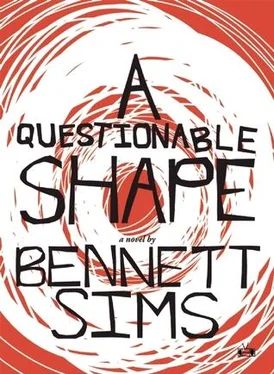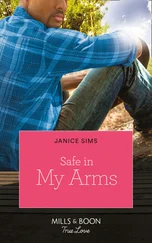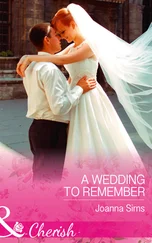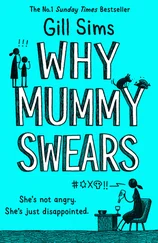To forestall any follow-up questions, I ask her reciprocally, ‘But what about you? What were you thinking, just a minute ago, before you thought to ask me?’ And how my mood lightens when she begins! For it turns out that Rachel has, somehow, avoided thinking about undeath and the silhouette all day. She’s succeeded brilliantly in distracting herself and has thankfully thought enough good things for the both of us. Gesturing to the water, she enumerates all the good things there that have been holding her interest since we got here: (1) because the freeway bridges the lake, all the cars overhead get reflected, and the eighteen-wheelers especially have been enjoyable to watch (that is, not the actual vehicles speeding along the overpass, but their reflections in the lake below, streaking rectangles of distortion that shudder through the muddy water: they look so monstrous, she says, these gray shapes skimming beneath the surface, that whenever one passes she can’t help thinking, ‘A Leviathan! A Loch Ness!’); (2) when ducks kick off the shore and glide out across the water, their wakes ripple back in lunular trails — like this:))) — such that each duck seems to be opening up a string of parentheses, nesting digressions that manage to hold the entire lake (the reflected clouds and reflected eighteen-wheelers, and the floating litter, too) in their aside of water, 69which can be closed only when another duck drifts by in the opposite direction, unleashing a terminating series of brackish brackets; 70(3) she can’t tell whether the white blob in the branches of that cypress, jutting out from the righthand bank, is a trash bag or an ibis, since the tree is far enough off that her eyes are unable to register any of the blob’s smaller movements — whether the whipping of windblown plastic or the wing-shuffling of a bird readjusting — and she has waffled for so long regarding which it is (sure one moment that it enjoys a heartbeat, and a gullet and guts, full of all the thrumming life that living birds are stuffed with; then equally certain an instant later that it’s just a pale plastic bag, puffed up and empty with air) that by now the white blob seems positively anamorphic, a smear of ambiguity that resolves from one angle into a bird and from another into a bag, as if Rachel, merely by tilting her head and following the spectrum along which these two images merged, could watch the smooth plastic begin to feather, begin to grow a beak and black eyes, as the bag graded into the ibis. 71
‘Well,’ she concludes, ‘I guess that’s it — that’s pretty much what I’ve been thinking this whole time.’ That’s it . What pleasant things to be thinking! Reflections, ducks, ibis-bags, not one of them referring to the silhouette. I wish I could think such pleasant things. Maybe once the search is finally over, I’ll be able to. Maybe next week we can walk back here, and I can make it a point to admire the eighteen-wheelers. For a moment I consider confessing to Rachel how badly I’ve betrayed the spirit of our day’s goal. I consider telling her what’s been weighing on my mind lately, every hitch in the search I’ve kept hidden from her, and then sharing all of my suspicions about the silhouette as well. I imagine the two of us laughing it off together: ‘It looks nothing like Mazoch!’ we would laugh. What made me think that that silhouette was Mazoch?
But just then my cell phone vibrates once against my thigh, and a nightmarish ice-water feeling floods my chest: I am certain that I am being notified of Mazoch’s undeath. As I dig into my pocket and withdraw the phone, I brace myself for the sight of the display screen… only to see, however, that Mazoch himself has texted me. Same time tomorrow, he wants to know? There on my cell phone is his name and his number, the message stamped at this very minute. But is it really possible? Mazoch, delivered like that from undeath? Suddenly becoming not that silhouette — as irrevocably not it as the ibis that’s just launched from the cypress branch is not a plastic bag?
I text back — not ‘Thank God you’re alive’—but the letter ‘Y.’ And when Rachel asks me who it was, I simply say, ‘Mazoch,’ as if this weren’t in itself a miracle to be savored.
IT’S FIVE P.M., THE END OF A LONG DAY. AFTER waiting all morning in Denham, we’ve spent the past several hours — as on other Fridays — visiting quarantines. Now we’re at the last on our list: the levee. 72There is nowhere else to look. At the base of the embankment, where the canted concrete yields to the yellow-grassed riverbank, Matt stands beside me with the binoculars, peering across the Mississippi. There are three barges moored on the opposite shore, each crammed to capacity with undead. 73
The barges must be thirty yards away, but even from here I can distinguish the fence of chain-link that has been erected around each boat’s perimeter, a barbwire barrier rising head-high and hazing the air with grayness. Standing behind the chain-link, boxed in on each bed, are what look to be two hundred undead silhouettes, packed shoulder to shoulder and wall to wall. Each barge resembles a little chunk of prison yard: the silver fence and the tense inmates. Presiding over these prison ships is a single police officer at the top of the levee, stationed in a glass guard booth on the slope directly behind us. The sun is hovering high overhead, spangling the muddy river water densely. That clouded current, purling south, is broad and brown, and where the light flecks it it looks nebular somehow, but fetid, like a diarrheal Milky Way. Indeed, so massive and cosmic is the Mississippi that the boats on it seem toylike. And at the sight of them it hits me — viscerally, as if for the first time — that obviously these infected cannot stay here: they will need to disembark before hurricane season.
Barging the undead, as LCDC and FEMA are now holding weekly press conferences to admit, is an untenable stopgap solution. Even if Baton Rouge is spared a direct collision in August or September, we can still expect storms heavy enough to demolish the fences, which is why LCDC’s timeline requires decommissioning the ships in the next couple of weeks. Some pundits, still horrified at the thought of the infected being brought back ashore (especially if it means reinstating residential processing centers), have suggested that they simply be relocated a few yards downriver, aboard the USS Kidd , the Fletcher -class destroyer docked here as a war memorial. Easily capable of housing the few hundred bodies, the Navy vessel would then serve — from the pundits’ point of view — as a kind of negative Noah’s ark, preserving anti-creatures or demons from destruction by flood. But no one has seriously brought this suggestion before the Louisiana Naval War Memorial Commission, and it seems likelier that the city’s surveyors will find some disused municipal building (a library, a prison, a dorm room) to be retrofitted as a quarantine. At any rate, they will have to find something before August. By then, any loose infected — any strays on the streets, who have not already been rounded up and quarantined, or else stumbled upon some reliable shelter to squat in — are going to be in for an interesting time: dashed by floods headfirst against telephone poles; brain-fried in electrified rainwater; crushed beneath fallen branches. Staring at the clear sky above us, I find it difficult to believe that there are already tropical storms forming over the Atlantic right now. But that is how it happens: one day you turn on the weather channel and see, in that satellite photo of the ocean far below, a cloudbank where the blue should be. It is vast, and white, with a spiral’s pupil in its center, and it reminds you suddenly — as it couldn’t have even a year ago — of an immense undead eyeball: milky, hundreds of miles wide, this blindness in the sky. You can monitor it daily, watching as it approaches the coast, but there is simply no way to tell: whether it will weaken once it hits land, or worsen as a hurricane; whether its winds will accelerate (ascending the pentatonic intensities of the Saffir-Simpson Scale: becoming a Category 3, then a 4, then a 5), or whether they will dissipate harmlessly. No way to tell till the week of. The day of. Those are the kinds of odds that Mr. Mazoch is looking at, if he’s still on the streets come August. And though Mazoch has never spoken openly about this, it has to be some of what he’s thinking right now as he chews the skin along the inside of his cheek, and scans the barges for his father’s face.
Читать дальше












